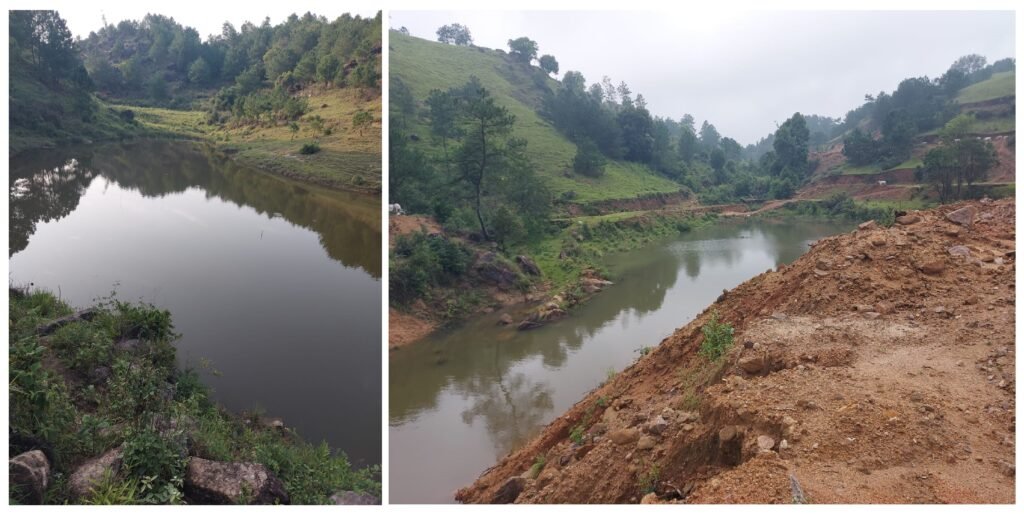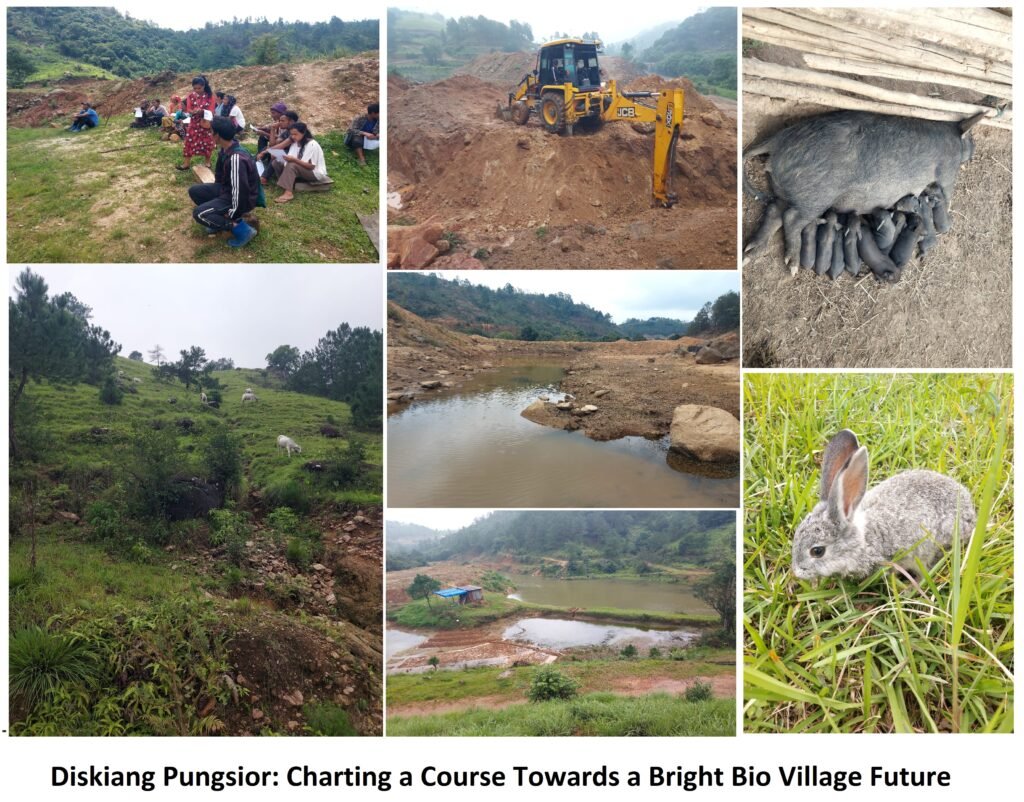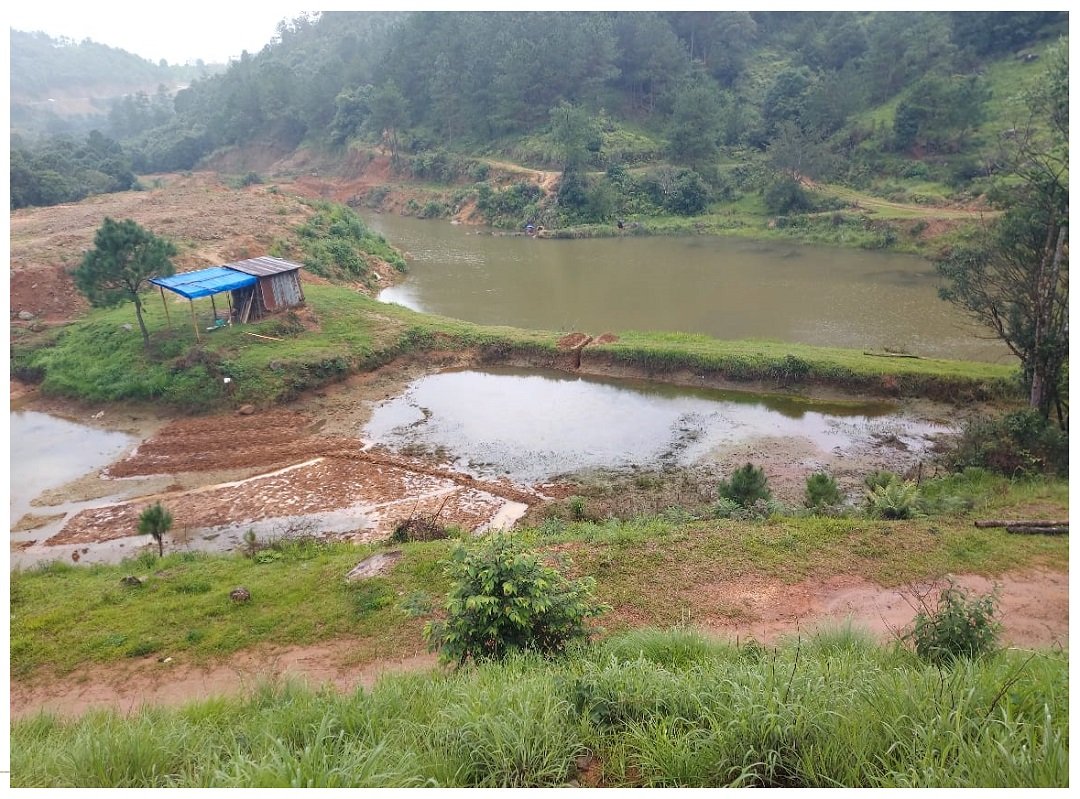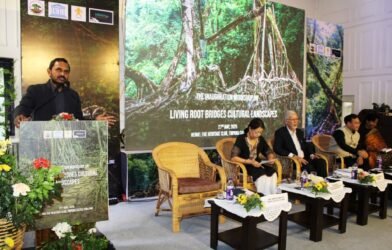Nongstoin, June 23: Tucked away in the verdant expanse of Meghalaya’s West Khasi Hills lies Diskiang Pungsior, a small yet vibrant village that embodies the spirit of community living and natural harmony. Part of the Nongstoin C.D. Block, this serene settlement—home to just 13 households—is located about 7 kilometers from Nongstoin town. Surrounded by Meghalaya’s signature lush landscapes, Diskiang Pungsior offers more than just scenic beauty: it holds the potential to become a model Bio Village of the future.
While official documentation on Diskiang Pungsior’s designation as a Bio Village is limited at present, the village’s scale, environment, and community values make it an ideal candidate for such a transformation. A Bio Village, by definition, fosters sustainable rural development through organic agriculture, renewable energy, biodiversity conservation, and empowered local governance. Envisioning Diskiang Pungsior in this light opens a hopeful chapter in Meghalaya’s pursuit of inclusive, green growth.

A Glimpse Into the Future: Diskiang Pungsior as a Bio Village
If Diskiang Pungsior were to fully embrace the Bio Village model, its transformation could include the following key pillars:
🌾 Thriving Organic Agriculture
With its fertile soil and rainfall-rich climate, Diskiang Pungsior could successfully shift to organic farming, eliminating synthetic fertilizers and pesticides. Reviving traditional crops and indigenous varieties would not only improve food quality and soil health but also conserve local agricultural knowledge.
💧 Sustainable Resource Management
Water Security: Rainwater harvesting systems, careful use of natural springs, and revival of age-old Khasi water management practices could ensure year-round water availability.
Renewable Energy: Solar panels for homes, energy-efficient stoves, and possible micro-hydro projects could power the village sustainably, reducing dependence on fossil fuels.
Waste Management: Composting of organic waste and community recycling initiatives could drastically reduce pollution and promote circular economy practices at the grassroots level.
🌿 Biodiversity Conservation
Located in one of India’s richest biodiversity hotspots, the village could protect its natural heritage through community-managed conservation zones, agroforestry practices, and native tree plantations, fostering a healthy ecosystem for both people and wildlife.

🤝 Empowered Communities and New Livelihoods
Skill Development: Villagers could be trained in organic farming, eco-tourism, bamboo craft, and natural dye use, broadening income sources and reducing migration.
Value Addition: Processing, branding, and marketing of local produce such as turmeric, honey, or handmade textiles could enhance earnings and visibility beyond state borders.
Participatory Governance: Local leadership and community-driven decision-making would ensure that initiatives reflect the people’s aspirations, increasing accountability and sustainability.
🌄 Eco-Tourism Potential
With its pristine environment and rich Khasi culture, Diskiang Pungsior could become a low-impact eco-tourism destination, offering visitors immersive experiences in rural living, organic farming, and cultural exchange. This would generate income while preserving the community’s way of life.
🫶 Improved Health and Well-Being
Access to chemical-free food, clean air, and safe water would lead to better health outcomes. A lifestyle rooted in nature and tradition would also promote mental wellness and social harmony.
A Model for Meghalaya and Beyond
The envisioned transformation of Diskiang Pungsior into a Bio Village is not just a dream—it is a blueprint for sustainable, community-led rural development. It symbolizes the convergence of ecology, economy, and equity. With the right support from government agencies, NGOs, and the community itself, Diskiang Pungsior can become a living example of how small villages can lead the way toward a more sustainable and resilient future.
In the heart of Meghalaya’s hills, the seeds of such a future are already sown, waiting only for the collective will to help them grow.









